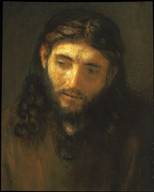
I'm reading Tom Wright's 'Surprised by Hope'. As usual with this author what you get is highly concentrated and thought-provoking writing in a good humoured and combative style. According to Richard Burridge Tom Wright is a 'Marmite man' - that is you either love him or hate him. Well, I love Marmite and the writing of Tom Wright.
In the chapter entitled 'What the whole world's waiting for' Wright draws attention to St Paul's belief that the whole creation is waiting, as in a period of gestation, to be redeemed. Creation itself will one day experience resurrection, following the resurrection of Jesus, and we ourselves will one day experience it in a personal and individual way.
It made me think again about the stages of human life. It seems to me that there are four significant stages, each of which begins with a crisis event: the first 'crisis' is that of conception which brings life into being, followed by a period of gestation (nine months); the second crisis is that of birth, followed by a period of 70 or 80 or more years; the third crisis is that of death, followed by - as Tom Wright, following St Paul, suggests - a period of 'sleeping'; and then finally comes resurrection followed by something very glorious that we can't understand now any more than an unborn child can know what life outside the womb will be like.
This confirms for me the value and sanctity of life through every event and process. This includes the moment of conception and life in the womb - an event followed by a process. Without the event there is no process; without conception there is no life. Or to put it the other way round: after conception there is life. This makes me feel very uneasy about artificially ending the life of an unborn child after conception - ending the process after the event, or, for that matter, artificially ending life by hastening death (suicide - assisted or otherwise).
I haven't finished Tom Wright's book and I'm keen to see if he has anything to say to those without faith in Christ - what does resurrection mean for them? But for those of faith he has very challenging words which pour scorn on a lot of the quasi-Christian myth and superstition surrounding death that passes for theology today. It is challenging me to think more carefully about what I believe, and about the pastoral care that I offer those who are bereaved.
I think 'Surprised by Hope' should provoke some lively debate among those who declare their belief in the resurrection.




